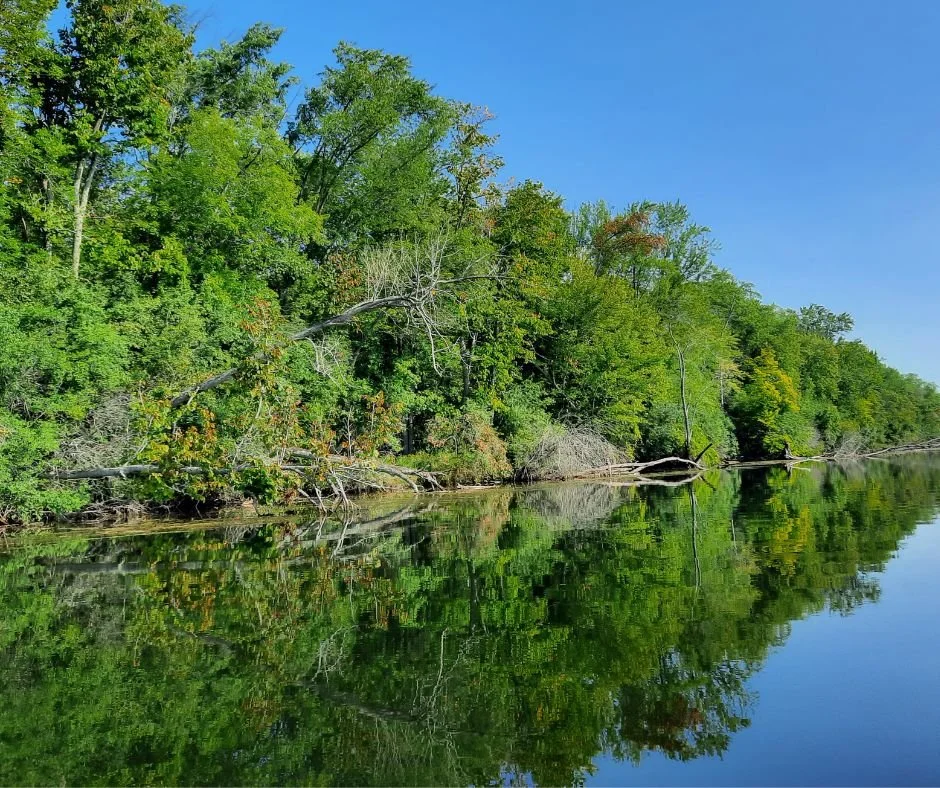Kawartha Land Trust to Receive $1.7 Million from Environment and Climate Change Canada
/Kawartha Land Trust (KLT) is set to receive $1.7 million over five years from Environment and Climate Change Canada's (ECCC) Nature Smart Climate Solutions Fund (NSCSF), furthering its land protection efforts in the Kawarthas announced Monday.
Shoreline of Kawartha Land Trust’s new Otonabee River Property, secured with support from the Nature Smart Climate Solutions Fund (Photo by Veronica Price-Jones/KLT)









